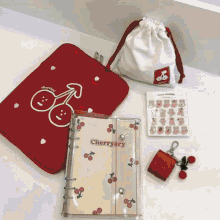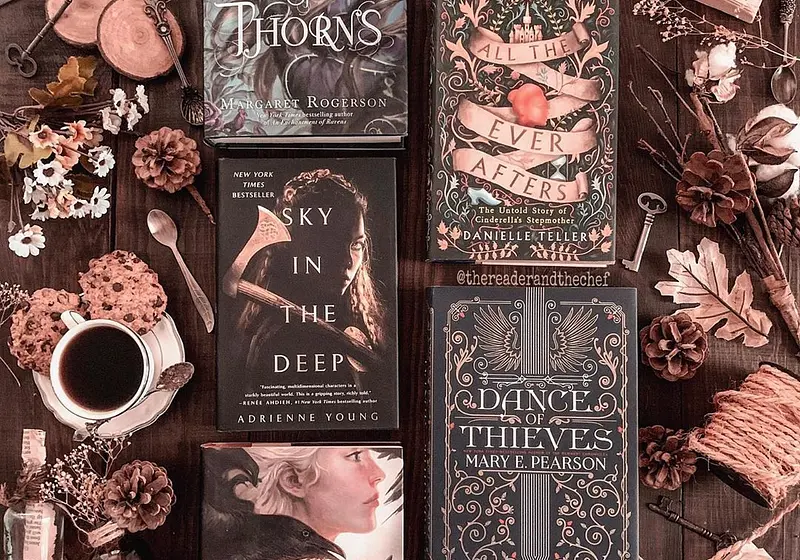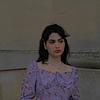How I Lost My First True Love: Reading
As a child, I read fantasy because it was fun. I read about wizards, fairies, and other mythical creatures, and was obsessed with those things even though they did not appear in real life. Of course, I knew that there was no train to Hogwarts, but it never stopped me from hoping that an owl would arrive with my acceptance letter.
But as I got older, I read less fiction because I was preoccupied with other things such as schoolwork and exams. I am not alone.
For most teens, reading is no longer a pleasure. Reading becomes work because it is viewed as a homework assignment or a test. The only time most teens read a book is for school, not because they want to, but because they are forced to.
As teens, if we read at all, it is not fantasy because it does not depict real life. Most teens think fairies and other mythical creatures are unrealistic and childish, so it is no longer a form of entertainment. But that is sad because fantasy is one of the best ways to learn valuable lessons about the real world, gain new perspectives, and find a sense of community. Reading fantasy is not just an entertaining pastime; it’s a source of help and inspiration.
New Perspectives on Everything from Friendship to Injustice
When reading the Harry Potter series for the first time, I was transported into the magical world of Hogwarts where I became a part of the character’s lives and their struggles. The series offers a powerful commentary on the human experience, as it explores themes of friendship, perseverance, and courage in the face of adversity. The fourth book, Goblet of Fire, particularly resonated with me, as it dealt with the return of the dark wizard, Voldemort, and the tragic loss of a friend.
This book shows readers how valuable friends and loved ones are—how much we can lose and how much we can gain by standing together. It also teaches readers to face their fears and to be brave in the face of danger. The book also highlights the importance of loyalty, trust ,and the power of unity, which are crucial for teenagers who are still discovering themselves and trying to navigate the complexities of relationships.
The lessons are anything but childish. They are meaningful and can help teens perceive the world around us, fight injustice, and how to interact with others in a positive way.
Alternate Paths: Fantasy is a Guide to New Possibilities
Fantasy also offers an alternative path to the one presented by society. Society often imposes certain expectations and norms on individuals, especially teenagers, and it can be difficult for them to imagine different possibilities for their lives. While parents and family members can provide valuable guidance and lessons about how to think and behave, not all teenagers have this support.
Fantasy can serve as an alternative source of instruction for how to behave. Characters’ actions help teens learn how to make their own choices and what the consequences might be, especially if those choices are different than the ones people expect them to make. Fantasy allows readers to explore different paths and possibilities, and can serve as an inspiring and empowering source of guidance. It can help teenagers to question the status quo and to think critically about the world around them, encouraging them to consider alternative perspectives and ways of living.
Community Creation: The Magic of Shared Connections
That is also why Fantasy can offer a sense of belonging and community, especially for teenagers who may feel like outsiders in their own society. In the Divergent series, for instance, Tris, the protagonist, learns that she does not fit into any of the assigned factions in her society. She later learns that she belongs to a group known as “Divergent.” Her realization sets her off on a transformative journey of self-discovery as she grapples with the weight of her individuality.
She knows that she does not belong to the rigid social structure, and this newfound understanding of her identity makes her question the forces that control her. Being a divergent, Tris becomes a catalyst for change and a symbol of hope in a society that values conformity above everything else.
The problems of many youths who can feel pressured to fit in with society might be related to Tris's quest for self-discovery and her rejection of a society that tries to control her individuality. The series also challenges readers to reflect critically on the ways that society can be oppressive and to challenge the structures that are in place in their own lives.
Fantasy Never Gives A False Promise
Non-fiction and even Realistic fiction give us a glimpse into the lives and the experiences of people around us and the events that shape our world. Most teens’ ideal form of reading is Realistic-fiction, because the books create scenarios that could actually happen. When teens read about being rich and popular, or finding about a secret fortune that was left to them, we are more interested because it is something that can be possible.
Realistic fiction offers a fabricated version of reality that captivates our attention and makes us want to know more. Although the scenarios might seem that it could happen, the likelihood of them happening is slim. Despite this, a part of us still wants them to come true, but we are disappointed in the end.
Fantasy does not provide a false promise like realistic fiction, because it is already indicated from the beginning that there are no such things as wizards, fairies, and unicorns. We know that the situation will not happen at all, but what we do know is that it will give us the chance to think beyond the bounds of our own reality and to investigate many possibilities. Realistic fiction might reflect the struggles and limitations of our everyday lives, but fantasy helps us to transcend these and helps better understand our own values and goals.
Fantasy gives us the freedom to explore alternate realities of ourselves and the world we live in while escaping the limitations of our daily lives. It enables us to reflect on our values and objectives and develop a deeper sense of who we are and where we fit in the world.















